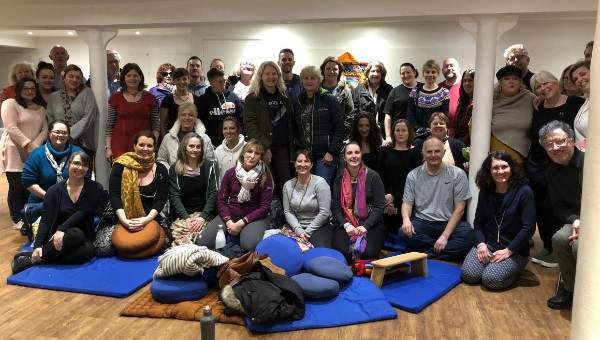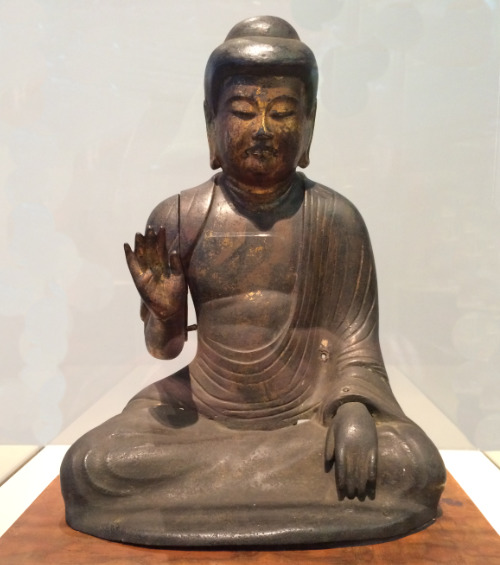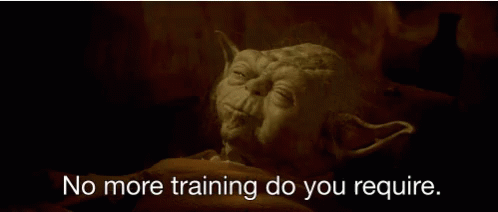Running a Triratna Group
If you run a group or are thinking of starting one,
you will find helpful information here.
Any questions or suggestions: info@triratnadevelopment.org

Why start a group?
As with any bold endeavour, it’s important to think it through and be as prepared as possible, whilst at the same time acknowledging that no-one can predict the future!
Here’s some questions to consider:
What is your motivation?
This may be straight-forward – to create Sangha, to spread the Dharma, etc – but worth acknowledging other motivations that may lurk! To be seen as ‘the teacher’, seeking approval, etc. Very few people will be ‘pure’ in this respect but our predominant drive would ideally be generosity, a valuing of Triratna that makes you want to pass it on.
What support do you have in place?
However inspired we currently feel, there will be times of frustration, disappointment and other challenges. Who can you turn to, seek advice and support from? Your team, when functioning well, will meet that need but there are also considerations like:
- am I getting on retreat enough myself?
- am I spending time with spiritual friends?
- is my own practice sustaining me, and is it deepening/growing?
Are you aware that there are regular gatherings of those involved in running groups? Every two months there is an online meeting for those who run groups and there are occasional weekends at Adhisthana, as well as events in mainland Europe.
Do you know your strengths and weaknesses?
Not easy to ‘know thyself’ but we probably already have a reasonable sense of our major strengths and less confident qualities. Ask those that know us well, and that we trust, to offer their thoughts – it’s all good information and remember we are all a ‘work in progress’!
It may lead to deciding to strengthen in a particular area (like attending a meditation teachers event), and also to look for people who are better suited to certain tasks (like keeping track of the finances for example) than ourselves.
What is your capacity?
How much time and energy do you have to commit to this project? What else are you juggling in your life? Some will find it important to boundary what they’re prepared to do: eg one evening a week. Hopefully there is something of a team, or there soon will be, and you can assess together what is realistic and sustainable. You may go through phases where you are focused on deepening for those already in contact, and at other times include a more outward-looking element (ie beginners classes).

What defines a Triratna Group?
This section has guidelines offered:
- as a support to those of us leading and facilitating Groups
- to help us focus on what, in essence, we are trying to do when we decide to start a new Triratna Group
- to clearly spell out what the main principles of best practice for our Group activities need to be to mitigate the arising of difficulties or disharmony
- to help ensure that we build something together that is distinctly Triratna and in harmony with the broader movement
- in the spirit of creative friendship and kalyana mitrata
If you prefer a pdf download, here it is

Hertford (UK) group
A Triratna Group is defined as...
any practice group that
- has regular meetings
- includes both study of the dharma and meditation in its activities, as well as opportunities for communication, ritual and developing friendships
- clearly labels itself as Triratna Group and sees Bhante Sangharakshita as their main teacher, and will primarily study his materials or that of his principal disciples
- will usually be under the guidance of a member of the Triratna Buddhist Order, or occasionally led by one or more established mitras
and becomes a Centre when...
- it starts owning a property or leasing its own premises
- forms a charity or similar legal structure and has trustees and the necessary office bearers
- it’s sangha has reached a certain size as well as a level of experience where there is a full path of practice available; from introductory courses to regular’s night, mitra study, day retreats, marking of festival days, supports those pursuing ordination, and teaches/exemplifies our System of Spiritual practice (integration, positive emotion, spiritual death, spiritual rebirth and receptivity)
- led by members of the Order, with the majority of the trustees being Order members; a Triratna Group however may be led by a local mitra, in the vast majority of cases under the guidance of an Order member
- it conforms to the ‘What is a Triratna Centre?‘ document
Groups come into being in different ways and vary in size but in all groups there will be a similar flavour that is distinctly Triratna and recognisable as such. The following sections seek to outline the qualities, practices and values that need to be evident for a group to be a recognisable Triratna Group, as part of a unified Movement, not just within a country but internationally, that will help the Triratna Community thrive long into the future.
To help clarify and explore this we’ll use the format of the ‘Four Lineages’, a set first outlined by Bhante in 2009 in discussion with the College of Public Preceptors.
The lineage of teaching
i In ‘What is the Western Buddhist Order’ (2009), Sangharakshita said ‘a spiritual community needs a high degree of commonality of practice’. What is taught and practiced at Triratna Groups is founded on Sangharakshita’s particular presentation of the Dharma, and is faithful to that.
ii At the heart of all teaching and practice is a sincere Going for Refuge. A Triratna Group is an expression of altruistic activity and the wish to alleviate suffering in the world by offering the Dharma to anyone who is interested. The motivation of running a Triratna Group stems from this wish, and not, for example, from a desire for personal status or financial gain.
iii The aim of any Triratna Group is to encourage a deepening Going for Refuge to Buddha, Dharma and Sangha, so central to Triratna, so Dharma teaching is as far as possible done by committed members of the Order.
In those situations where no, or only a few, order members are present, activities might be led by mitras who, ideally, will have asked for ordination and be actively in training for ordination so they have a context and support for their practice. It is also desirable that they lead their Group under the guidance of one or more Order Members.
As a principle it is important that those who lead a Group understand, support and practice the spiritual principles of the Triratna Buddhist Community, are in harmony with the spirit of the movement and Order, and active in its life.
The lineage of inspiration
- it should be clear and public that each Group is part of Triratna, under the guidance of the Order, and with Sangharakshita as our founding teacher
- each Triratna Group is linked to the whole Triratna community through a shared framework of teaching and practice and through a network of kalyana mitrata that transcends the individual situation – no Triratna Group exists in isolation; that is a contradiction in terms; we are all part of a worldwide sangha. In order to maintain unity with other Triratna centres, as well as to sustain individual inspiration, it is important that those leading activities and taking responsibility running the Group make efforts to meet with other members of the Order, or others taking responsibility within Triratna.
- Order Members are very much encouraged to be part of a chapter and go on Order events and attend retreats. They would benefit from having kalyana mitras with whom they are in harmony and in regular contact. In the case of mitras leading the group it is important that they too regularly go on retreat and have connections outside their Group. Ideally they will have the explicit support of two Order Members.
- it is common practice of every Triratna Group to occasionally invite other Order Members to its events, where this is geographically possibly; to help give those attending a sense of the wider Triratna Sangha.
- each Triratna Group will have access to mitra convenors; one for women and one for men.
Making people mitras: The mitra convenors have established clear procedures and guidelines of what is helpful and necessary to communicate to a prospective mitra. It is recommended that you either contact a mitra convenor you know to talk to the mitra-to-be; or you can talk to your nearest mitra convenor and find out what you need to cover with the prospective mitra.
- Kalyana Mitra for a Group: [Guidelines from Presidents Meeting Executive]
– it is advisable for a Triratna Group to be mentored by one or more Order members from outside the situation who can provide connection, perspective, and help. This is especially important when the group is run by a single Order member or just by mitras. These outside Order members can act as kalyana mitras to the Sangha.
– becoming Kalyana Mitra to a Group does not involve the degree of commitment expected of a President. Nonetheless it is important that they embody the same qualities (see appendix).
– some Groups will aspire to become Triratna Centres in due course, and in some situations Kalyana Mitras could think of themselves as ‘proto-Presidents’, growing into that responsibility as their Groups grow and develop.
– although such Kalyana Mitras do not need to be formally agreed upon by the Presidents’ Executive, nonetheless it would be wise to consult with this Executive or the Development Team (or other regional body with similar experience). – do inform the Development Team (info@triratnadevelopment.org) and the Presidents’ Executive (paramabandhu@lbc.org.uk or lokabandhu@gmail.com) as to who is acting as your Kalyana Mitra. You will also want to explicitly inform your Sangha that an Order member is acting in this capacity and to celebrate this in some way.
7. ideally a new Triratna Group is initiated and run by a team of people (Order members, mitras and friends), not just one person. A team communicates directly that our aim is not just about communicating the dharma but also creating Sangha and practicing spiritual friendship.
Appendix – qualities of a Kalyana Mitra for a group
- the Kalyana Mitra will be an experienced Order member, with a maturity and stability in Going for Refuge and, ideally, experience of working for Triratna
- the Kalyana Mitra needs to be spiritually inspired and effective, to be enthusiastic about Bhante and wholeheartedly support the Triratna approach to the Dharma so that he or she is able to exemplify and communicate the Triratna tradition
- the Kalyana Mitra will be in good communication with their own Preceptors and Kalyana Mitras, active in the life of the Order and Movement, and connected through effective friendships
- the Kalyana Mitra must be trusted and able to communicate with a wide range of Order members, Mitras, and Friends around a Centre, able to listen to different perspectives, help ‘hold’ and facilitate discussion on controversial issues, and offer guidance on the spiritual principles involved
- the Kalyana Mitra needs to have the time and energy to be a Kalyana Mitra!
The lineage of practice
i Activities will clearly fall within the System of Spiritual Practice: this model can provide a useful framework for all activities; with an emphasis, at least in the smaller or beginning groups, on the practices of integration, ethics, and positive emotion.
ii The core meditation practices are mindfulness of breathing and metta bhavana, complemented by just sitting and other body-based mindfulness practices.
iii Triratna has its own approach to the Dharma determined mainly by the books and talks of Sangharakshita: this will be reflected in the study and teaching of the dharma offered.
iv Puja & devotion are an important part of Sangharakshita’s emphasis that for a spiritual life to be effective we need to involve the emotions and the imagination. At the very least, there will be a shrine, with an image of the Buddha and the traditional flowers, candles and incense/essential oil to help create an atmosphere of reverence.
Saluting the shrine, chanting the refuges & precepts, and mantra chanting should be introduced as soon as appropriate and part of Regular’s/Sangha nights.
v A Group may not be able to offer all levels of a progressive training locally – actually no Group or Centre can! The smallest Group or the largest Centre needs to encourage people to deepen and broaden their experience of the Dharma through going on retreat, as well doing mitra study and developing connections with Order Members outside of their immediate Sangha. Although you may lose a few people who find a ‘bigger’ situation irresistible, this is success! Especially where a Group is still young, it will need to point those who wish to go deeper, e.g. those who ask for ordination, to the activities of a larger Group, Buddhist Centre or retreat centre. To that end, the Group will cooperate with other Groups or Centres in its area.
The lineage of responsibility
i A Triratna Group cannot be owned or controlled exclusively by any particular individual or subgroup. Each Triratna Group is open to the influence of the Order as a whole and will welcome Order Members’ participation as appropriate.
ii A founding principle of the Triratna Buddhist Community has been that those who run and ‘control’ any of its Buddhist Centres should be ‘spiritually committed’ and the principle holds true for Triratna Groups. ‘Spiritually committed’ means that the central orientation of one’s life is to go for refuge to the Buddha, Dharma and Sangha. The person in question will practice ethics, meditation and wisdom to the best of their ability, and will have made a conscious choice that they wish to practice within the Triratna Buddhist Community.
At the heart of every Group therefore need to be the spiritually committed who are teaching and practicing in accord with Bhante’s presentation of the Dharma. Where a Group is led my mitras, they should actively invite guidance by order members, e.g. by finding kalyana mitras as described in section vi in the lineage of inspiration.
iii In order to maintain unity with the wider movement, to share their experiences with others, and receive training and inspiration, those who are involved in leading or supporting Triratna Groups are strongly encouraged to attend twice-yearly events at Adhisthana. Look for ‘Groups & Pioneers’ on Adhisthana’s calendar – they run from Thursday evening to Sunday early afternoon.
iv There is also a page on thebuddhistcentre.com, Triratna Groups and Pioneers, where resources for the support of Group leaders are kept.
v Within Triratna, those taking shared responsibility aim to work cooperatively and consensually together, in ‘the love mode’. As an important application of this we aim to make organisational decisions consensually where possible. For further material on the practice and understanding of consensus in the Triratna Community see:
‘Ideas on Consensus as Practice’ and this useful guidance
vi It is strongly recommended that any assets of the Group are held in a Community Bank account and not just in an individual’s personal account. This will also help maintain a clarity of the fact that any rupas, thangkas or other equipment bought with funds raised by the Group remain the property of the Group in question and are not the property of an individual.
vii Safeguarding: please take seriously the guidance on safeguarding here
viii Insurance (for UK): unless you are an outreach of an established Centre and covered by their insurance, it is highly recommended that you partake in the groups insurance scheme, costing about £60/year – see here – the insurers also require a risk assessment and there is a sample one on this same post.
The basics
OK, so we are going to start a group. What do we need to know or do?
What is the 'competition' like?
You don’t need to worry too much about this, but it might inform where you meet, or how you ‘market’ yourselves. There’s a good chance the NKT are already in town but that’s OK, they are everywhere!
Where to hold classes/meetings?
This is mainly common sense like considering noise from neighbouring events, ease of access, parking, not in the scariest part of town perhaps?!
How will you publicise your classes?
Though there may be still some good places to put posters or leaflets in shop windows, the public library etc, most publicity these days will be online. Do you need a website (see here for an almost free option)? Are you confident with social media?
There’s some info and resources here
What & how will you teach/offer?
As a Triratna group, we assume you will largely base your classes and courses on core Triratna material, founded in Sangharakshita’s presentation of the Dharma. There is plenty of material, but rather than reinvent the wheel you could use course structures that others have found effective – see the Dharma Resources page as well as the excellent Sikkha website
Here is some helpful advice about teaching:
- Bhante’s 15 points for communicating the Dharma
- some excellent points and pointers from the LBC
- top tips on leading study
- public speaking training
- some considerations about who teaches & suggested criteria for who teaches
- ideas of how to communicate the system of practice
Can you invite Order Members to visit?
As well as giving you a bit of a break, having guest speakers/leaders is invaluable for your group – a fresh voice, different way of putting things etc, as well as their unique experience to share.
This will mainly rely on your networking skills though, as there’s currently not a list of suitable and willing candidates! So whenever you’re on retreat, bear it in mind – it’s always more pleasant to be asked than not, especially if you can take care of their travel expenses etc

Growing your group
A Triratna Group is, hopefully, a long-term project. People will come and go, numbers will wax and wane, so we need to consider what will help us share the task and at some point pass it on to other, perhaps younger, friends!
You may find this description of the stages of growth useful – where would you place your group?
If you’re thinking of making the transition from Group to Centre, here’s some useful info
Can you exemplify and encourage friendship?
Much has been written and said about the importance of friendship and how to practice it. Bhante suggested that the Sangha grows one friendship at a time. There are no ‘tricks’ but there are some basic principles to bear in mind:
- make metta bhavana (or similar) a tangible part of your meditation practice
- try to deepen your friendships with those who are most involved/committed – start there and see what time is left for others – people need to see Sangha in action
- be interested in others’ lives, whilst ‘steering to the deep’ when you can, making the communication as meaningful as possible without trying to force anything to happen
- you may find inspiration and guidance in Maitreyabandhu’s book on friendship
Can you give responsibility to others?
You need to make your contribution to the group as sustainable as possible. Partly that involves looking after yourself, and partly allowing other people to help you and share the tasks and responsibilities.
Young people thrive and connect through being involved, being asked to do things. Share the burden, create Sangha and a sense of a shared project.
Making people mitras
Part of growing your group will be enabling people to express their deepening commitment and connection through becoming a mitra. If your group has Order Members involved, they can oversee the process. If you don’t have Order Members involved you are advised to make contact with the Mitra Convenor at your nearest Triratna Centre and take it from there. It shouldn’t be too casual nor too onerous to make people mitras.
This is the current ‘what is a mitra?‘ pdf for you to download and share
Legal matters
Some rented venues require that you have Public Liability insurance. For groups in the UK, the ECA offer insurance for groups under their own policy – about £65/year if you wish to join.
Safeguarding: important and necessary – more details here
Model policies: worth having a browse through these
Are you an outreach of a Centre or not?
If you’re not an outreach from a Centre (which will have public liability insurance and other policies) please ensure public liability insurance is in place and inform yourself of safeguarding obligations.
It is important that your group is not isolated and is part of the living, breathing body of Triratna, as it were. To this end, the Development Team help run regular online meetings for mutual support, community and information sharing. info@triratnadevelopment.org for more details
Some resources...
Here’s a handbook full of tips and inspiration for people running a group:
You can also join the space for Groups and Pioneers on The Buddhist Centre Online
And write to info@triratnadevelopment.org if you would like to be added to our mailing-list to stay informed of in-person and online events for Groups & Pioneers.
Who does what in Triratna
Triratna has evolved organically, perhaps even anarchically, with no master plan. It is a network of independent bodies and individuals co-operating on the basis of a shared understanding of Going for Refuge to Buddha, Dharma & Sangha.
Despite that, we can consider Triratna as comprising of 3 strands:
- The College of Public Preceptors are those responsible for ordinations and matters associated with that
- The Order (Triratna Buddhist Order) are those individuals who have received ordination – in principle, Order Members relate to one another simply as Order Members and seniority or institutional responsbilities are of lesser prominence
- The Movement is simply the sum total of the ways that the Order engages with wider society and the wider Sangha, whether that’s helping to run Centres, groups, retreats, classes, run projects together, the practice of friendship, and many other ways.
A relatively new way of trying to join up these various strands is through the International Council, a collaborative, decision-making, issue-chewing ‘representative’ body from Order Members around the world.
If you need to contact the College, email collegeassistant [at] adhisthana.org
The Order has ‘the Order Office’ which comprises of:
- International Order Convenors (currently Aryajaya & Vajrapriya – contact via the admin team below or Order Members can find their email on Order Address List)
- Ethics Order Convenor – working with situations of disharmony or unskilfulness not easily resolved locally – ethicsorderconvenor [at] gmail.com
- Admin team can be reached at orderoffice [at] triratnaorder.org
Separate from the Order Office, but dealing primarily for the benefit of Order Members is the Abhayaratna Trust – a charity that distributes donated funds to those in need
The Movement is of course less centralised – a good place to start is the ECA: European Chairs Assembly, a body comprising of Chairs of Triratna Centres in Europe. As well as supporting one another and discussing matters of mutual interest, the ECA gathers modest funds to fund projects and some staff known as the Development Team
- info [at] triratnadevelopment.org for general enquiries, and emails for young person and racial diversity coordinators can be forwarded from there
- International Movement Coordinator (currently Jnanadhara): imc [at] internationalcouncil.online
- safeguarding [at] triratna.community for safeguarding (a secure email address)
- Mitra Convenors (outside India): mitraconvenorsexec [at] gmail.com
- The Buddhist Centre Online (TBCO): support [at] thebuddhistcentre.com
- Sikkha: sikkhaproject [at] gmail.com
- Future Dharma Fund: see contact form
All Buddha qualities are needed!
Starting and running a group is an expression of generosity – ‘Dharma dana’ being the highest gift we can give. But through such giving we also grow and cultivate ourselves. Win win!
All teachers know that by having to explain something to others, their own understanding deepens. But as well as clarity, all Buddha qualities – ethical sensitivity, friendliness, energy, patience, versatility etc etc – will help greatly!


This whole resource is designed to help, but if things get tough, or go awry, or you just need a listening ear or advice, please email us in the Development Team:

